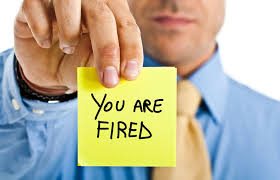| Termination for Cause is Not Automatic Basis for Denying Unemployment Benefits |
| A common question we receive… Q. We terminated an employee for a violation of company policy (in this case falsifying accounting records). She has filed a claim for unemployment benefits. We want to fight her claim. What are the types of “misconduct” that will result in a denial of unemployment benefits? Employers should understand that terminating an employee for misconduct or violating company policy will not automatically disqualify the employee from receiving unemployment benefits. Unemployment Insurance Code Under California Unemployment Insurance Code Section 1256, certain factors can disqualify an employee from receiving unemployment insurance benefits, such as voluntarily quitting a job without good cause. If an employer fires an employee, unemployment benefits will be denied only if the employer can show that the employee was discharged for misconduct connected with their most recent work. Definition of Misconduct “Misconduct,” as used in the code, is defined as willful or wanton disregard of an employer’s interests, or such carelessness or negligence as to manifest equal culpability. (Amador v. Unemployment Insurance Appeals Board, 35 Cal. 3d 671 (1984); UI Code, Section 1256)). Note – this is a narrow definition of misconduct. Terminations for inefficiency, unsatisfactory conduct, poor job performance, inadvertent errors or ordinary negligence in isolated instances, or good-faith errors in judgment or discretion will not rise to the level of misconduct. Misconduct that typically results in denial of unemployment benefits include theft, fraud, intoxication, deliberate violation of safety rules, workplace violence, deliberately falsifying a timecard and harassment. Employer Has Burden of Proof Employers also must keep in mind that the law presumes an employee was not fired for misconduct (UI Code, Section 1256). The burden of proving misconduct falls on the employer, and it is up to the employer to submit evidence relating to the misconduct. The employer who fired the employee for falsifying accounting records will need to submit clear evidence of the employee’s misconduct, such as copies of the falsified accounting records, company policies, disciplinary notices, witness statements or any other supporting information or records. The EDD will require an employer to provide strong proof of misconduct before it disqualifies an employee from receiving unemployment benefits. Red Flag Tip Because of the narrow definition of misconduct under the law, it may be difficult for an employer to successfully challenge a terminated employee’s unemployment insurance claim. Before investing the time and money to fight a former employee’s claim for benefits, evaluate carefully the reason for an employee’s termination and whether you can provide evidence of misconduct. For additional information, please call our office at (714) 799-1115 |









